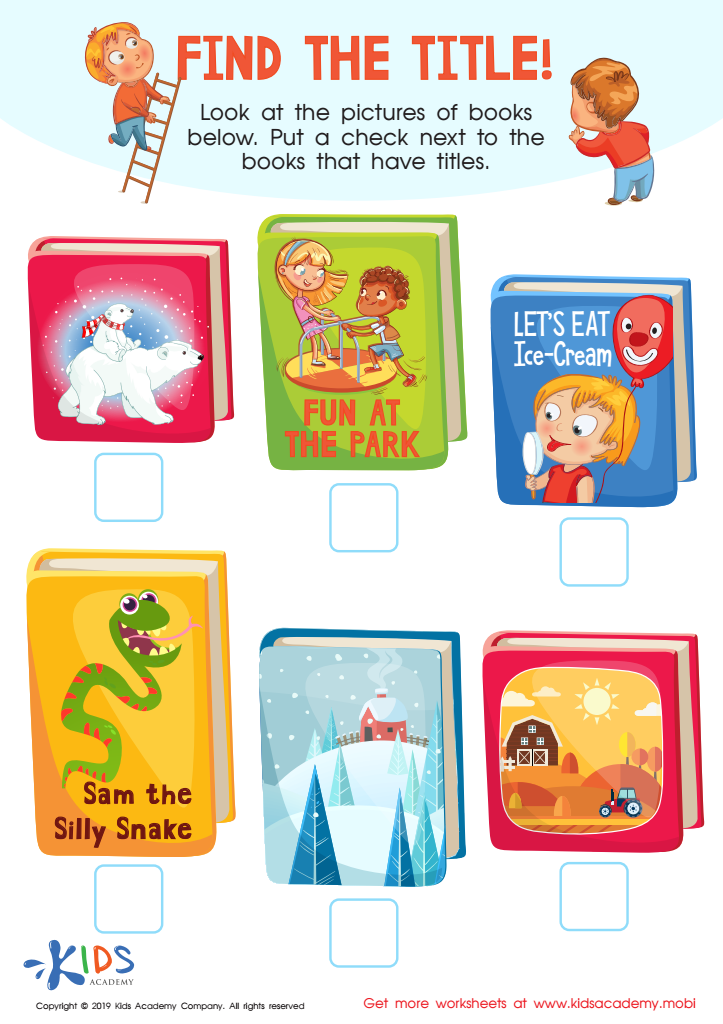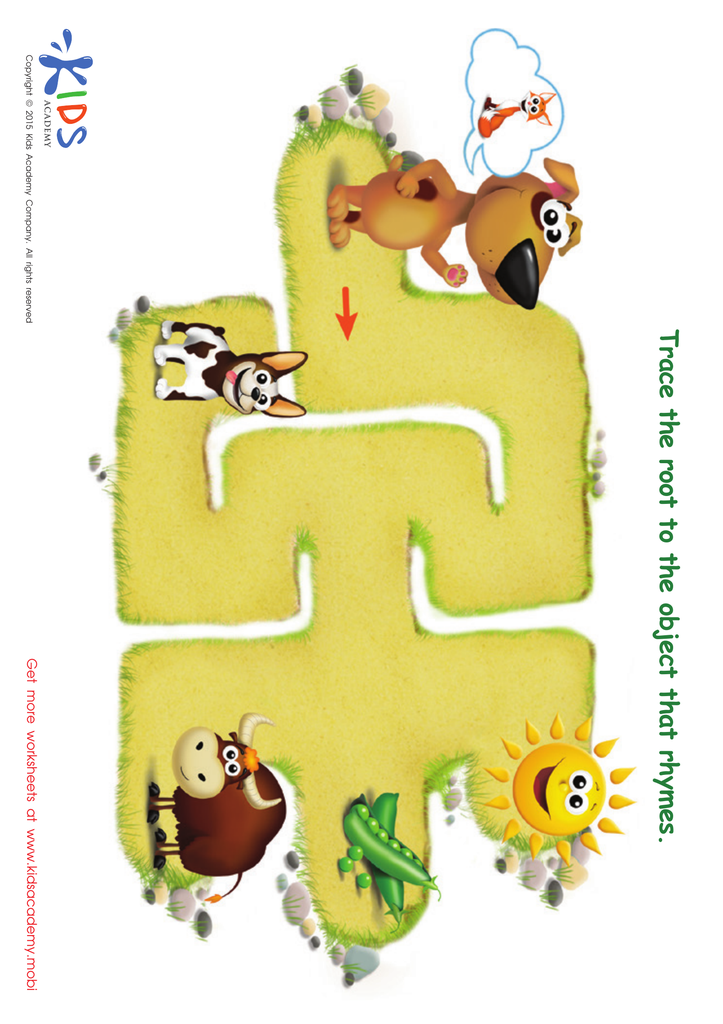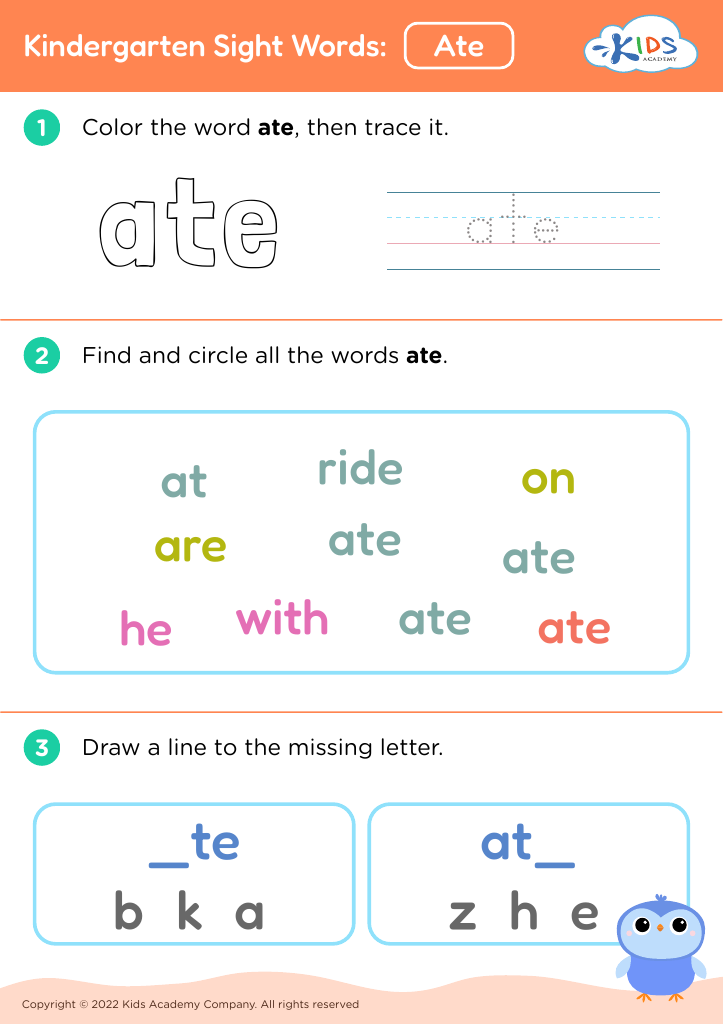Develop critical thinking Reading Worksheets for Ages 3-5
4 filtered results
-
From - To
Unlock your child's potential with our comprehensive "Develop Critical Thinking Reading Worksheets" tailored for ages 3-5. These engaging worksheets are designed to enhance early literacy skills while fostering critical thinking abilities. Each activity encourages young learners to analyze, interpret, and respond to stories, promoting comprehension and creativity. With vibrant illustrations and interactive prompts, your child will enjoy exploring themes and making connections in a fun and accessible way. Perfect for teachers and parents alike, these worksheets provide a valuable resource to support early cognitive development through reading. Start nurturing a lifelong love of learning today!


Find the Title Worksheet


Fox Rhyming Words Worksheet
Developing critical thinking skills in young children, particularly those aged 3-5, is crucial for their cognitive and social-emotional development. During these formative years, children's brains are highly receptive, and engaging them in critical thinking activities through reading can lay a strong foundation for their future learning.
When parents and teachers encourage critical thinking while reading, they promote curiosity and creativity. Asking open-ended questions about stories helps children analyze characters, predict outcomes, and draw connections to their own experiences. This interaction not only deepens comprehension but also fosters a love for reading.
Moreover, critical thinking enhances problem-solving skills. As children discuss plot dilemmas or character motivations, they learn to evaluate situations thoughtfully, understand different perspectives, and make informed decisions. This early exposure equips them with tools to navigate challenges later in life.
Lastly, fostering critical thinking in young readers cultivates emotional intelligence. Children learn to empathize with characters, reflecting on their feelings and actions. This understanding promotes healthy relationships and improved communication skills.
In summary, cultivating critical thinking through reading for ages 3-5 enriches children's cognitive, social, and emotional growth, paving the way for lifelong learning and success.

 Assign to My Students
Assign to My Students























